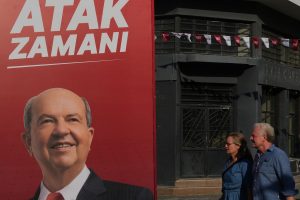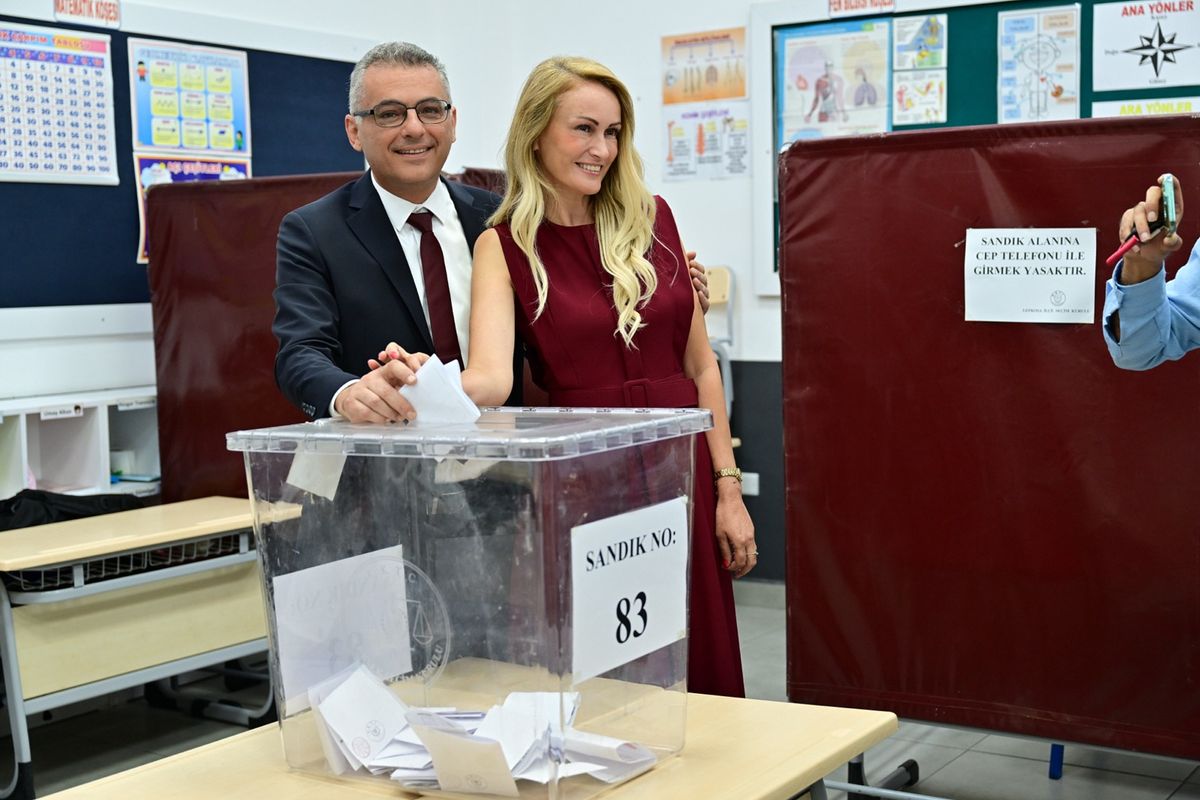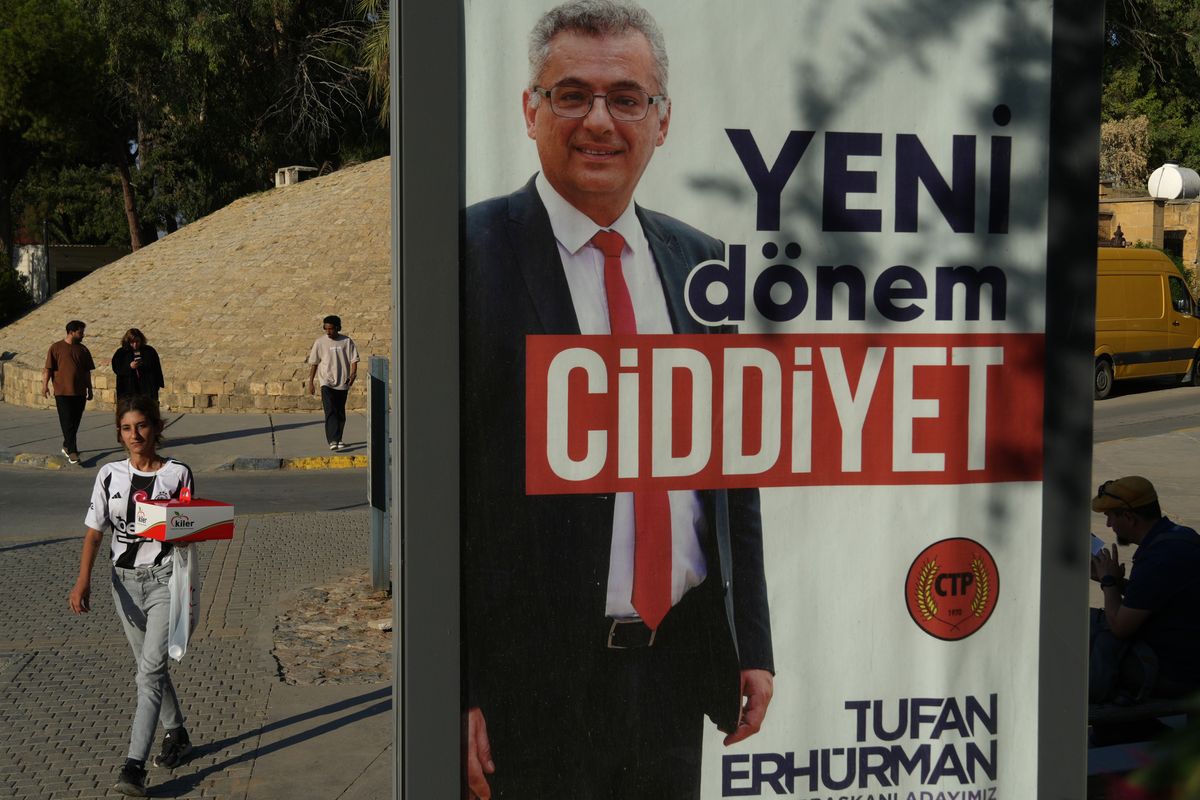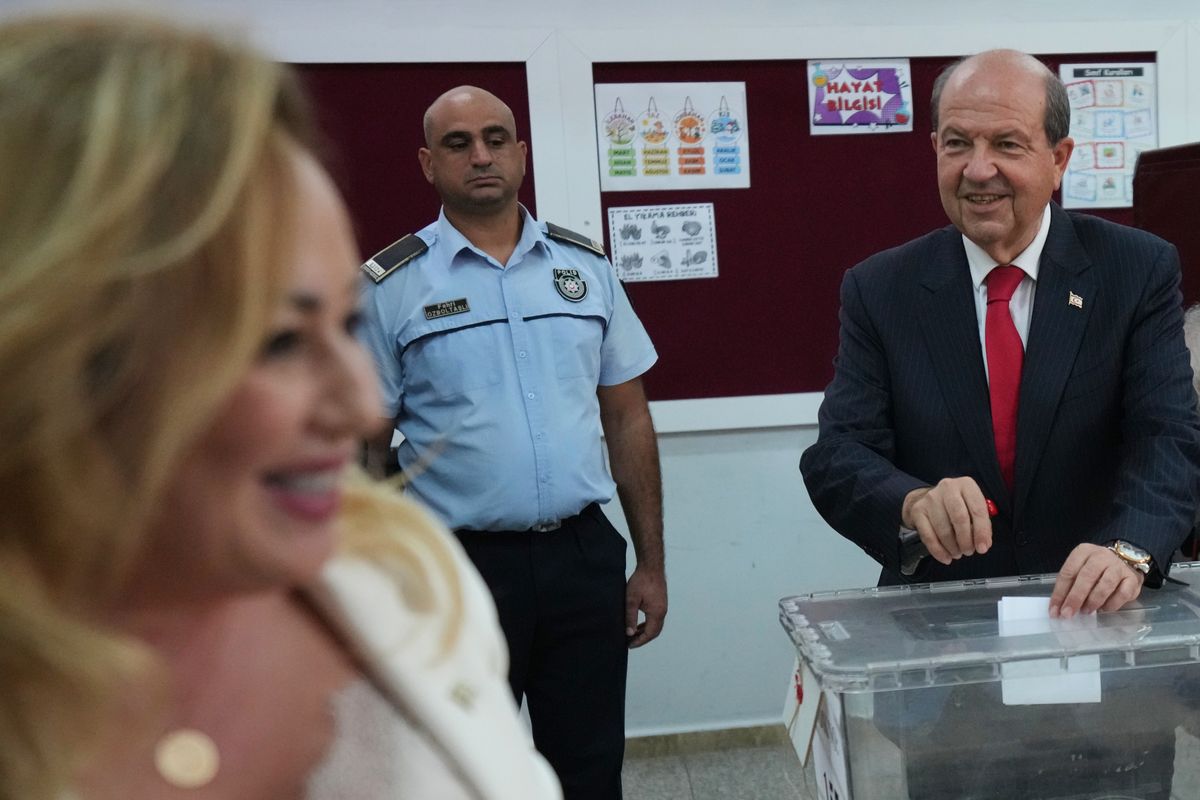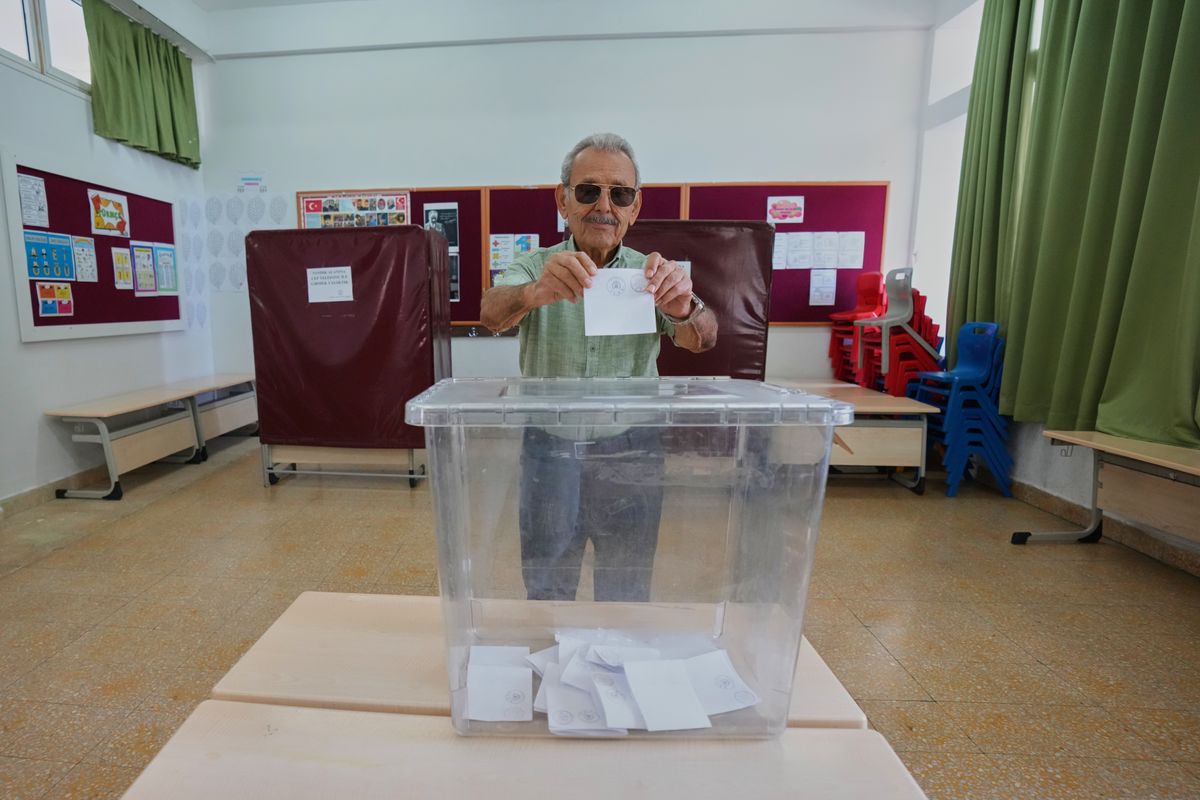NICOSIA (AP) — Hopes for a resumption of long-stalled talks to heal Cyprus’ decades-old ethnic rift were buoyed Sunday when Turkish Cypriots elected a leader who campaigned on getting back to negotiating a two-zone federation with rival Greek Cypriots after an eight-year stalemate.
Tufan Erhurman, 55, won by a landslide, receiving 62.76% of the vote, against incumbent Ersin Tatar’s 35.81%, according to unofficial figures broadcast on BRT TV.
In his first remarks after the vote count made clear that his lead was unassailable, Erhurman sent o ut a message of unity, saying he would embrace all citizens regardless of their party affiliation and that he would govern collectively.
Turkish Cypriots turned away from Tatar’s vision for a two-state deal in Cyprus that Turkey has championed since 2017 when the last major push to resolve the dispute collapsed amid much acrimony.
Erhurman had harshly criticized Tatar’s reluctance to engage in formal peace talks all through his five-year term as a costly loss of time that has alienated Turkish Cypriots from the European Union and pushed them farther on the international periphery.
Cyprus was as divided in 1974 when Turkey invaded days after Greek junta-backed supporters of union with Greece mounted a coup. Only Turkey recognizes a 1983 Turkish Cypriot declaration of independence and maintains more than 35,000 troops in the north.
Cyprus joined the European Union in 2004, but only the Greek Cypriot south, where the internationally recognized government is seated, enjoys full benefits. Many Turkish Cypriots hold EU-recognized Cyprus passports but live in the north.
The stakes for a Cyprus peace deal are significant. Peace could expedite the exploitation of sizable natural gas deposits that lie in waters off Cyprus’ southern coast that could power Egypt and Europe. It would also potentially lift Turkish objections to an electricity cable project that would connect Greece and Cyprus. Israel is said to look favorably on extending that link to its own power grid.
Even though election result bodes well for a U.N.-backed push to restart formal negotiations, significant challenges to reaching a peace deal remain.
Turkey’s President Recep Tayyip Erdogan made clear in his address to the General Assembly last month that he backs a two-state deal on Cyprus. It’s uncertain if Erhurman has the clout to deviate from this line given the north’s economic and political dependence on Turkey.
Erhurman has rejected claims that he would seek to abolish Turkey’s military intervention rights in place under any peace agreement. Greek Cypriots see any such rights enshrined in a deal as a threat to their own security. Greek Cypriot officials said the dealbreaker in the 2017 talks was Turkey’s insistence keeping its right to intervene as well as its troops indefinitely on the island.
While the minority Turkish Cypriots say a Turkish military presence is necessary for their protection, Greek Cypriots interpret this as Ankara’s means to assert its control over the entire island.
Erhurman says “political equality” for Turkish Cypriots is non-negotiable. The obscure term is interpreted differently by either side, but Greek Cypriots say a demand by the minority Turkish Cypriots for veto powers over all decisions taken at the federal level is unfair.
The new Turkish Cypriot leader insists Turkish Cypriots shouldn’t bear the brunt of another possible talks failure, alluding to the prospect of the international community engaging directly with the breakaway north, through air connectivity and trade if a new round of negotiations collapse. Greek Cypriots have argued that setting such a condition on the talks would disincentivize any search for a fair deal.
By MENELAOS HADJICOSTIS
Associated Press

